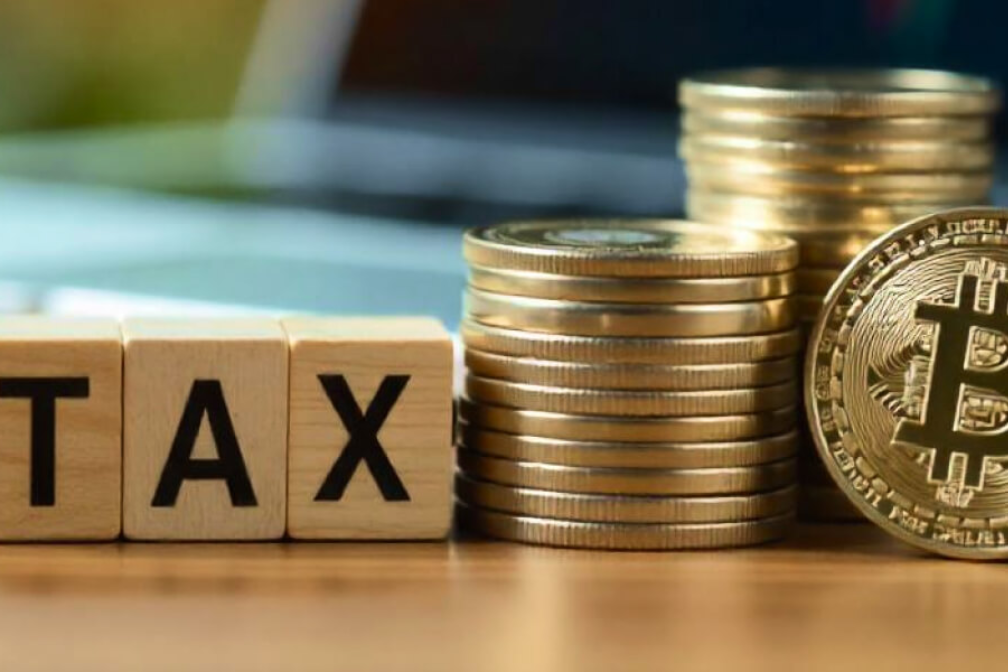
A cryptocurrency, crypto-currency, crypto, or coin is a digital money that functions as a means of exchange via a computer network and is not reliant on any central authority, such as to sustain or retain it as a government or bank.
Individual coin ownership records are held in a digital ledger, which is a computerised database that uses strong encryption to safeguard transaction records, control currency production, and verify coin ownership transfers.
Despite its name, cryptocurrencies are not regarded currencies in the traditional sense, and while other classifications have been assigned to them, including commodities, securities, and currencies, cryptocurrencies are typically recognised as an unique asset class in practice.
Several crypto systems employ validators to keep the coin operating.
In a proof-of-stake system, owners put up their tokens as collateral.
They get control of the token in proportion to the amount promised in exchange.
Token holders frequently receive more token ownership over time as a result of network fees, newly issued tokens, or other similar compensation methods.
Cryptocurrency does not exist in physical form (unlike paper money) and is not often issued by a central body.
Unlike central bank digital money, cryptocurrencies frequently use decentralised control (CBDC).
When a cryptocurrency is coined or created prior to issuance or issued by a single issuer, it is considered centralised.
When decentralised control is used, each cryptocurrency operates via distributed ledger technology, often a blockchain, which acts as a public financial transaction database.
Traditional asset classes, such as currencies, commodities, and equities, as well as macroeconomic factors, have only a little exposure to cryptocurrency returns.
A cryptocurrency is a marketable digital asset or digital form of money that exists solely online and is based on blockchain technology.
Cryptocurrencies, as the name implies, employ encryption to authenticate and safeguard transactions.
There are nearly a thousand distinct cryptocurrencies in use today.
Cryptocurrency prices have surged and then dropped in recent years.
Crypto exchanges do not ensure that an investor will complete a buy or transaction at the best possible price.
As a result, many investors take advantage of this by utilising arbitrage to uncover the price difference between many marketplaces.
Bitcoin was the first decentralised cryptocurrency, and it was released as open-source software in 2009.
Many additional cryptocurrencies have been launched after the introduction of Bitcoin.
The Past
David Chaum, an American cryptographer, invented ecash, an anonymous cryptographic electronic money, in 1983.
Later, in 1995, he put idea into action using Digicash, an early kind of encrypted electronic payment.
Before it could be transmitted to a recipient, Digicash required user software to withdraw notes from a bank and select particular encrypted keys.
This rendered the digital money untraceable by the issuing bank, government, or any other third party.
The National Security Agency published a paper titled How to Make a Mint: the Cryptography of Anonymous Electronic Cash in 1996, first on an MIT email group and subsequently in The American Law Review in 1997, outlining a Cryptocurrency system. (Vol. 46, No. 4)
In 1998, Wei Dai defined "b-money" as an anonymous, distributed electronic monetary system.
Nick Szabo quickly described bit gold.
Bit gold (not to be confused with the following gold-based exchange BitGold) was characterised as an electronic money system that required users to execute a proof of work function, with solutions cryptographically created and published, similar to Bitcoin and other subsequent cryptocurrencies.
Bitcoin, the first decentralised cryptocurrency, was founded in 2009 by a supposedly pseudonymous inventor named Satoshi Nakamoto.
In its proof-of-work technique, it employed SHA-256, a cryptographic hash function.
Namecoin was established in April 2011 in an attempt to build a decentralised DNS system that would make internet censorship exceedingly difficult.
Soon after, in October 2011, Litecoin was introduced, which employed scrypt instead of SHA-256 as its hash mechanism. Peercoin, another significant cryptocurrency, uses a proof-of-work/proof-of-stake hybrid.
On August 6, 2014, the UK Treasury said that it has commissioned a study of cryptocurrencies and the role, if any, they would play in the UK economy.
The research was also supposed to recommend whether or not regulation should be explored.
Its final report was published in 2018, and in January 2021, it launched a consultation on cryptoassets and stablecoins.
El Salvador became the first country to accept Bitcoin as legal cash in June 2021, when the Legislative Assembly voted 62–22 to approve a law proposed by President Nayib Bukele to define the cryptocurrency as such.
Cuba followed suit in August 2021 with Resolution 215 to recognise and control cryptocurrencies such as Bitcoin.
In September 2021, the government of China, the world's largest cryptocurrency market, declared all cryptocurrency transactions unlawful, completing a cryptocurrency crackdown that had previously prohibited the operation of middlemen and miners within China.
Definition in formal terms
A cryptocurrency, according to Jan Lansky, is a system that fits six criteria:
The system does not require a central authority to maintain its state; instead, it relies on distributed consensus.
The system maintains track of bitcoin units and who owns them.
The mechanism governs the creation of new bitcoin units. If new cryptocurrency units may be formed, the system describes the circumstances around their creation as well as how to establish who owns these new units.
Bitcoin ownership can only be confirmed cryptographically.
The system facilitates transactions that alter the ownership of cryptographic units. A transaction declaration may only be made by an entity that confirms current ownership of these units.
If two distinct instructions for changing the ownership of the same cryptographic units are entered simultaneously, the system will only execute one of them.
The term cryptocurrency was introduced to the Merriam-Webster Dictionary in March 2018.
So what are Altcoins?
Alternative cryptocurrencies are tokens, cryptocurrencies, and other sorts of digital assets that are not Bitcoin.
They are sometimes abbreviated as "altcoins" or "alt coins," or derisively referred to as "shitcoins."
Because Bitcoin serves as the standard protocol for altcoin inventors, Paul Vigna of The Wall Street Journal referred to altcoins as "different versions of Bitcoin."
When compared to Bitcoin, altcoins frequently have fundamental differences.
Litecoin, for example, seeks to execute a block every 2.5 minutes rather than every 10 minutes, allowing it to complete transactions quicker than Bitcoin.
Ethereum, for example, includes smart contract technology that allows decentralised apps to operate on its blockchain.
According to Bloomberg News, Ethereum was the most widely used blockchain in 2020.
According to the New York Times, it has the highest "following" of any cryptocurrency in 2016.
Significant gains in altcoin markets are sometimes referred to as a "altseason."
Stablecoins
Stablecoins are cryptocurrencies that are meant to keep their purchasing power steady.
Notably, these designs are not infallible, as a number of stable currencies have crashed or lost their peg, notably the Terra collapse on May 11, 2022, which saw UST plummet from $1 to 26 cents and linked token Luna plunge 99.9%.
Architecture Design
Decentralised cryptocurrency is created collectively by the whole cryptocurrency system at a pace that is determined when the system is formed and is publicly known.
Corporate boards or governments regulate the issuance of money in centralised banking and economic systems such as the US Federal Reserve System.
Companies or governments cannot create new units of decentralised cryptocurrency, and have not yet offered support for other corporations, banks, or corporate organisations that have asset value measured in it.
Satoshi Nakamoto's group or individual invented the underlying technological system on which decentralised cryptocurrencies are built.
In May 2018, there were over 1,800 cryptocurrency specifications.
The safety, integrity, and balance of ledgers are maintained within a proof-of-work cryptocurrency system such as Bitcoin by a community of mutually distrustful parties known as miners: who use their computers to assist in the validation and timestamping of transactions, adding them to the ledger in line with a certain timestamping method.
Transactions in a proof-of-stake (PoS) blockchain are confirmed by holders of the linked cryptocurrency, who are frequently gathered together in stake pools.
Most cryptocurrencies are structured to gradually reduce the currency's supply, putting a limit on the total quantity of that money that will ever be in circulation.
When compared to traditional currencies held by financial institutions or kept as cash on hand, cryptocurrencies can be more difficult for law authorities to seize.
What does Blockchain do?
The validity of each cryptocurrency's coins is handed by a blockchain. A blockchain is an ever-expanding series of documents called blocks that are connected and encrypted. Each block generally contains a hash pointer as a link to a former block, a timestamp and sale data. By design, blockchains are innately resistant to revision of the data. It’s “an open, distributed tally that can record deals between two parties efficiently and in a empirical and endless way". For use as a distributed tally, a blockchain is generally managed by a peer-to- peer network inclusively clinging to a protocol for validating new blocks. Once recorded, the data in any given block cannot be altered retroactively without the revision of all posterior blocks, which requires conspiracy of the network maturity.
Blockchains are secure by design and are an illustration of a distributed computing system with high intricate fault forbearance. Decentralised agreement has thus been achieved with a blockchain.














